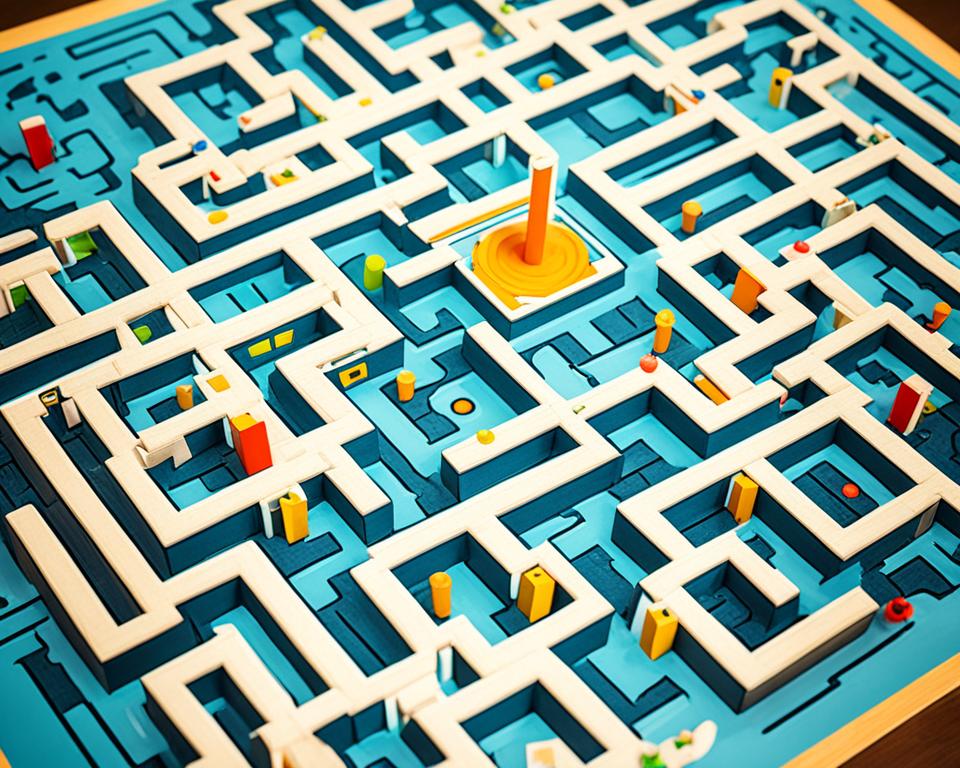Adverts
Have you ever wondered how the games you love are created? Who is responsible for planning and bringing these interactive experiences to life? Well, this is the role of the game designer, the professional behind the design and game development.
Adverts
A game designer plays an essential role in creating a game, planning and creating all its content, dynamics, characters, interactions and user experience. From creating the plot to establishing rules and obstacles, the game designer is responsible for making the game engaging and captivating.
To become a successful game designer, you need skills like creativity, basic knowledge of schedule and technology, Problem solving, time management and attention to detail. With these skills, you'll be able to create incredible stories, fascinating worlds, and unforgettable characters.
Adverts
Main points to consider:
- The game designer is essential for the game creation engaging and captivating.
- The game designer's work involves planning and creating characters, plot, maps and game rules.
- Skills like creativity, knowledge of schedule It is Problem solving are fundamental to being a game designer.
- Acquiring knowledge through courses and gaining experience are important steps towards becoming a game designer.
- The gaming industry offers several career opportunities beyond working directly as a game designer.
What does a Game Designer do?
A game designer is responsible for creating and planning a game in all aspects, including plot, characters, maps, rules, obstacles and difficulty levels. The game designer works together with other professionals, such as game artists, tech artists and developers, and their main role is to ensure an engaging and captivating user experience.
The game designer is not limited to the visual aspect of the game, as his work involves creative and technical aspects. He is responsible for creating a cohesive narrative, defining how characters behave and interact, creating environments and defining the rules of the game. In short, the game designer is the mind behind the player's experience.
To illustrate the importance of the game designer’s work, below is an example of some of this professional’s responsibilities:
| Game Designer Responsibilities |
|---|
| Create the game plot |
| Develop the characters |
| Create maps and environments |
| Establish rules and obstacles |
| Set difficulty levels |
A game designer needs to have skills such as creativity, basic knowledge of schedule and technology, Problem solving, time management and attention to detail. These skills are essential for creating high-quality, engaging games.
Thus, the game designer's work goes beyond the simple visual creation of a game. He is responsible for all stages of the development process, ensuring that the game is fun, challenging and enjoyable for players.
See too:
Stay in:
- Check out our next block, where we will discuss the skills needed to become a successful Game Designer.
- Discover how to gain knowledge and practical experience in the field of game creation.
Skills needed to be a Game Designer
To become a successful game designer, it is essential to develop a variety of behavioral and technical skills. These skills play a crucial role in game creation engaging and exciting. Below, we highlight some of the most important skills that a game designer needs to have:
- Creativity: Creativity is fundamental for a game designer, as he or she is responsible for creating fascinating stories, imaginative worlds and captivating characters. It's the ability to think outside the box and find innovative solutions to game challenges.
- Basic knowledge of programming and technology: To follow the development of the game and understand what can be done, it is important to have basic knowledge of programming and technology. This allows the game designer to effectively collaborate with the development team and contribute to the creation of unique mechanics and interactions.
- Problem solving: During the development of a game, challenges and obstacles often arise. Having solid problem-solving skills is essential to finding effective solutions and overcoming these difficulties, ensuring the game is functional and fun.
- Time management: To ensure that the game project is completed within the set deadline, it is important to have time management skills. This involves the ability to set realistic deadlines, prioritize tasks and organize work efficiently.
- Attention to the details: Attention to detail is a key skill for creating an immersive, hassle-free experience. A game designer needs to be meticulous when defining the rules of the game, designing the environments and creating the visual and sound elements. This ability ensures that the game is cohesive and provides a high-quality experience for players.
Possessing the above-mentioned skills is an important step towards becoming a successful game designer. However, it is worth noting that being an expert in all of these areas can take time and practice. It is always important to be willing to learn and improve your skills over time.

How to become a Game Designer
If you are interested in becoming a game designer, there are some steps you can take to achieve this goal. Acquiring solid knowledge is essential to stand out in this very competitive area.
One option to acquire this knowledge is through undergraduate courses or specialized courses in game design. These courses will provide the theoretical and practical foundations necessary to understand the principles of game design and how to apply them in practice.
However, do not limit yourself to just theoretical studies. It is also important to gain practical experience in the area. This can be done through internships in companies game development, participation in practical projects or even game jams, where you will work in teams and have the opportunity to create a complete game in a short period of time.
Furthermore, it is crucial to know the gaming industry, study and analyze games from different genres and platforms. This will help you understand market trends and player preferences, as well as spark your creativity and inspiration.
Developing technical skills is also essential to becoming a game designer. This includes knowing specific tools and software used in creating games, such as game engines and 3D modeling programs. Learning English is another important aspect, as many companies require the language and most resources and documentation are available in English.
Finally, never stop learning and improving your skills. The gaming industry is constantly evolving and new technologies and trends are always emerging. Stay up to date by attending events, conferences and workshops related to the game design. And don't forget to constantly update your portfolio with your latest projects.
By following these steps and putting in the time and effort, you will be on your way to becoming a successful game designer.
Recommended courses:
| Course | Duration | Institution |
|---|---|---|
| Course of Game Development | 2 years | XYZ University |
| Certified in Game Design | 6 months | ABC Institute |
| Online Game Design Course | 3 months | DEF Teaching Platform |
Remember to research and choose the course that best suits your needs and goals.
Conclusion
If you are passionate about creating interactive experiences, a career in game design and game development can offer an exciting and challenging journey. As a game designer, you play a fundamental role in creating games, from the conception of the idea to the completion of the project.
To become a successful game designer, it is essential to acquire knowledge and skills through undergraduate courses, specialized courses or self-taught learning. Furthermore, having a solid portfolio and practical experience through internships or practical projects is extremely important to guarantee a place in the job market.
The gaming industry offers diverse career opportunities beyond working as a game designer. You can explore other areas, such as screenwriting, animator, and informational game developer. Remember that continually developing your skills and networking are key to staying up to date and building a successful career in the gaming industry.
FAQ
What is a game designer?
A game designer is responsible for creating and planning a game in all aspects, including plot, characters, maps, rules, obstacles and difficulty levels.
What are the responsibilities of a game designer?
A game designer's responsibilities include creating the game's plot, developing characters, creating maps and environments, establishing rules and obstacles, and defining difficulty levels.
What skills are needed to be a game designer?
To become a game designer, you need to have skills such as creativity, basic knowledge of programming and technology, problem solving, time management and attention to detail.
How to become a game designer?
To become a game designer, it is recommended to acquire knowledge through undergraduate courses or specialized courses in game design. Furthermore, it is important to have practical experience in the area, whether through internships, practical projects or participation in game jams.
What are the career opportunities in the gaming industry?
In addition to working as a game designer, opportunities to career in the gaming industry may include other roles such as scriptwriter, animator, informational game developer and tester.
What is the average salary of a game designer in Brazil?
The average salary of a game designer in Brazil is R$5,212 per month.
Source Links
- https://www.cruzeirodosulvirtual.com.br/cursos-livres/game-design-e-desenvolvimento-de-jogos/
- https://ebaconline.com.br/blog/game-designer-o-que-faz
- https://querobolsa.com.br/carreiras-e-profissoes/designer-de-games

